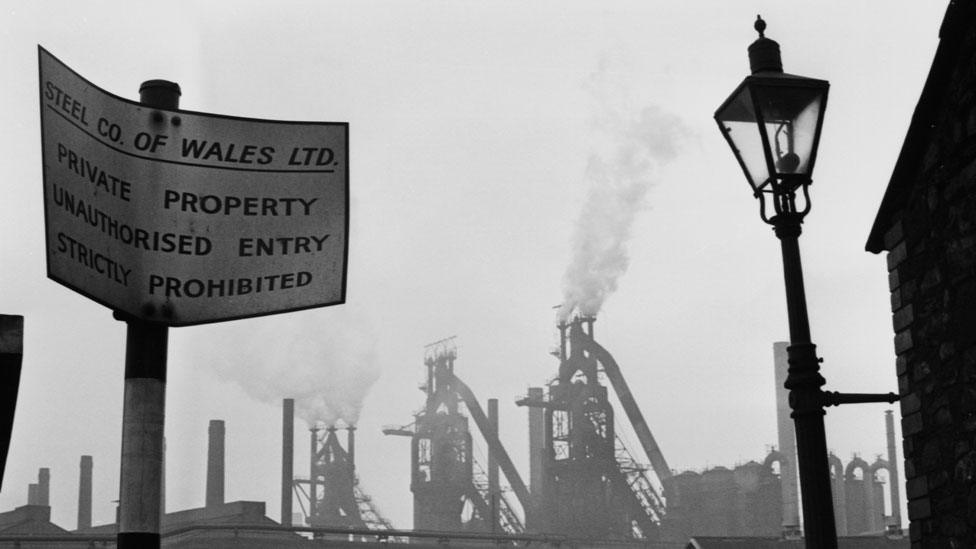Is steel still important to the Welsh economy?
- Published
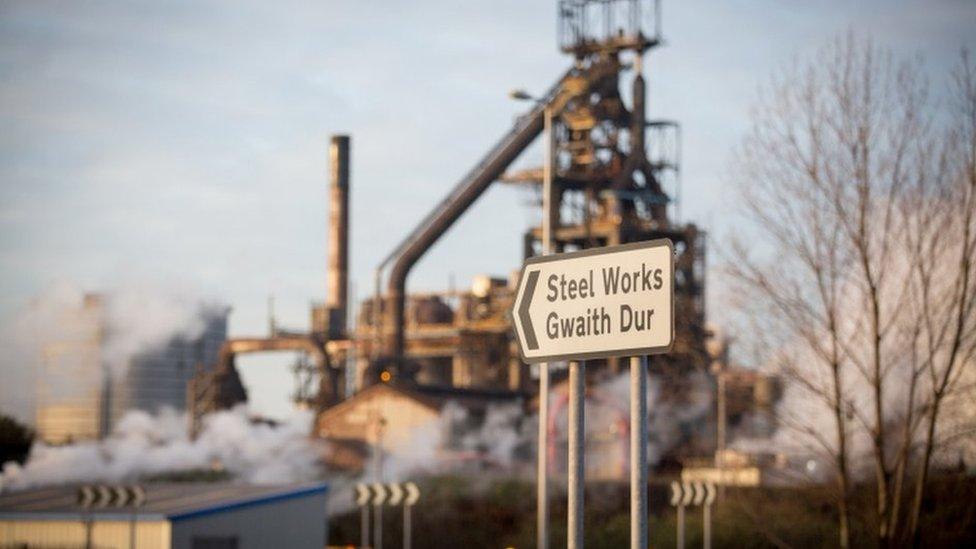
What a year it has been for steel. Twelve months ago the future for Tata in Wales looked very gloomy and had the worst happened - the Port Talbot site closed and mothballed - the whole Welsh economy would have contracted significantly.
Why is what Tata does still important here?
WHAT IT PAYS IN RATES
Tata pays massive amounts in business rates.
While its plant at Llanwern in Newport is not as important as it was decades ago, Tata still pays more than £3m a year in business rates.
Those for the giant Port Talbot works will of course be much higher. What is interesting is that all that revenue from the five Tata sites in Wales is pooled and then shared out across all Welsh local authorities, benefiting all parts of the country.
SUPPORTING JOBS
Tata's workforce may well have fallen to 6,300 in Wales but it is calculated to inject about £200m a year in wages to its employees alone.
On top of that there are thousands of other jobs in Wales, dependent on Tata - calculated in a report from the Cardiff-based Wales Economy Research Unit (WERU) in 2012 to be around 18,000.
Professor Calvin Jones, one of the authors of the report, said the messages from that detailed analysis still stands.
The salaries of those thousands of workers are relatively high - they tend to be twice the minimum wage and are largely spent in the wider economy.
TATA AS A SUPPLIER - AND CONSUMER
Welsh steel goes into a wide range of goods like washing machines and food tins but there is the potential to supply bigger markets - the proposed tidal lagoons and big road and rail projects.
Tata is also a big consumer. Union Unite said the plant in Port Talbot alone uses as much energy as the whole of the city of Swansea. In 2011 its spending on water, gas and electricity was £150m a year, money that would be sorely missed by utility firms.
Dwr Cymru said Tata is one of its biggest private customers in Wales.
WHAT VALUE DOES IT BRING TO WALES?
Economist Prof Calvin Jones said there needs to be a long-term 'plan B' to prepare Port Talbot for a future without a steel plant
The calculations, by WERU suggest Tata and its supply chain is worth £3.3bn a year to Wales - and on site it generates about 3% of the entire Welsh economy.
Prof Calvin Jones said Tata has "heft" and is unique in the Welsh economy.
"It's important in a strict number sense - several thousand jobs over different operations, all of which are well paid, when we looked at it in 2012 no-one was paid less than double the minimum wage, the workers are well trained, good career progression - those sorts of jobs are very hard to find in somewhere like Wales.
"It also has an iconic status. Wales still prides itself on its industry, even in the times when that has been reduced. When the last of that goes, then what is left is a lot of low value added, back office stuff, which doesn't feel like a distinctive economy."
Tata employees have much to think about with this proposal, when the consultation starts next week.
The promise of a jobs pact equivalent to the Dutch plant will be welcomed as will the £1bn 10-year investment plan in Port Talbot.
However the proposal to close the British Steel Pension Scheme (BSPS) will no doubt raise many questions among the workforce.
The proposed new pension scheme would see employers paying in 10% and employees 6% - much higher than the 3% and 3% opening offer earlier in the year.
But the average length of service with Tata in Wales is 16 years and we can expect many more detailed questions from the workforce as they dissect the proposal from the management.
- Published7 December 2016
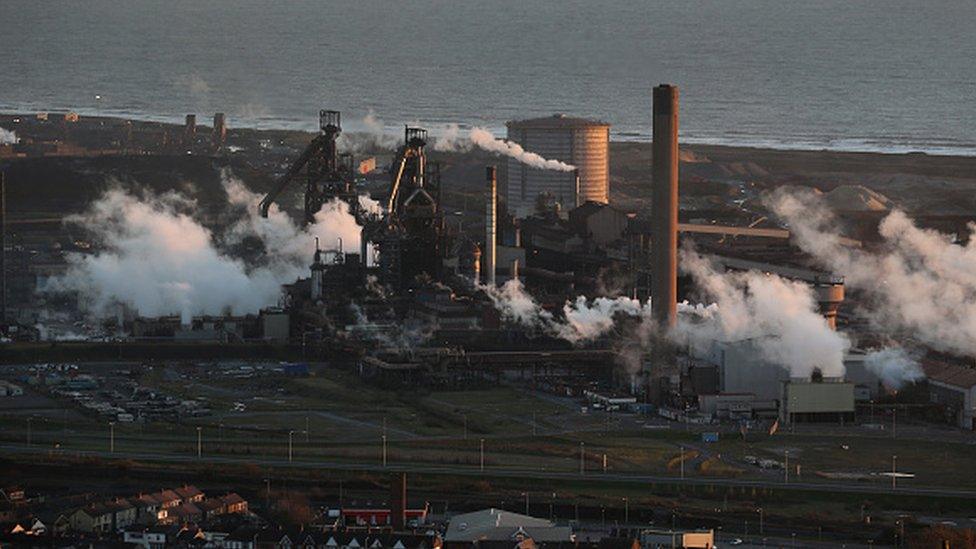
- Published27 June 2016
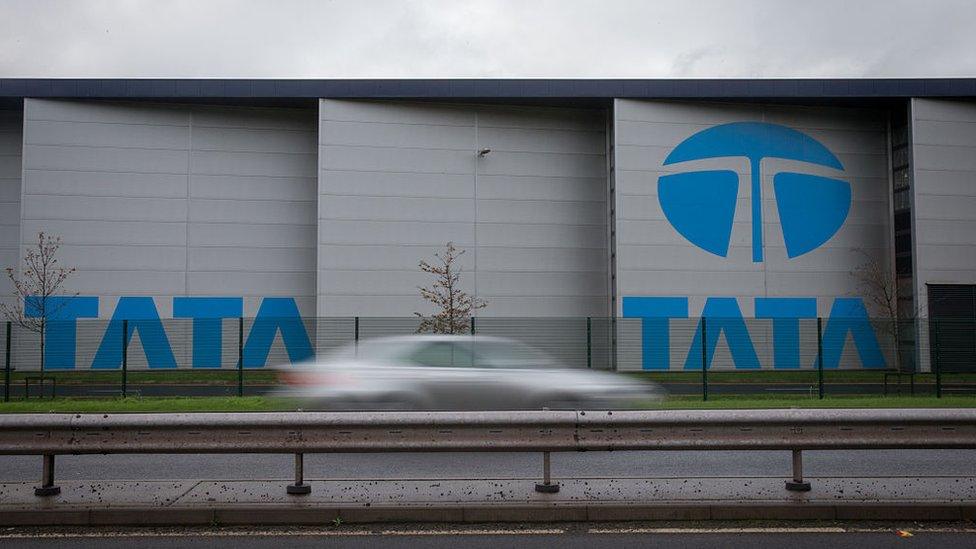
- Published24 October 2016

- Published7 July 2016
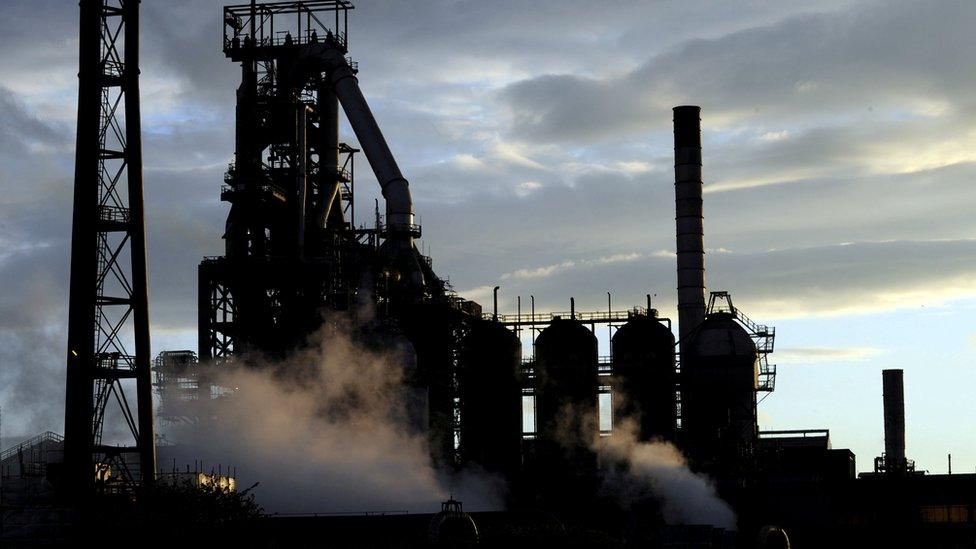
- Published20 October 2016
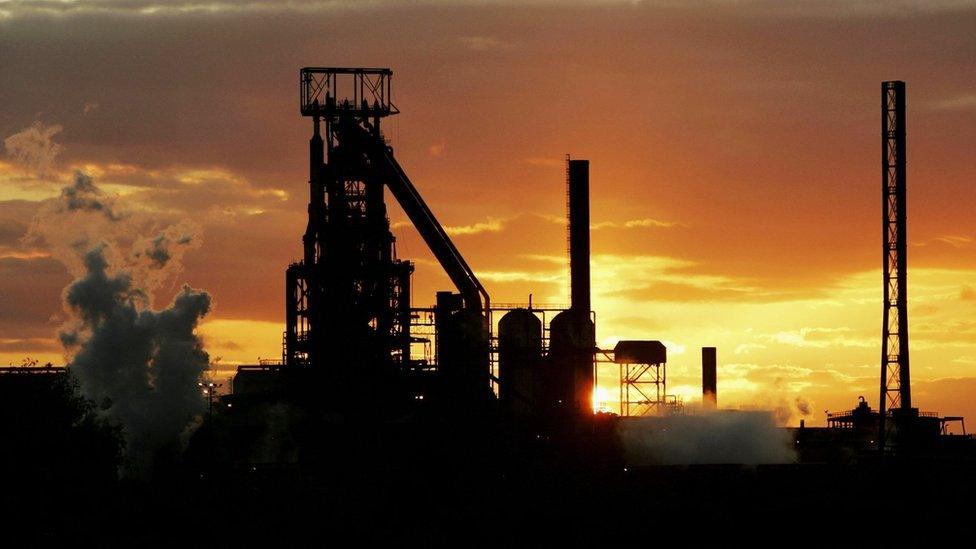
- Published30 March 2016
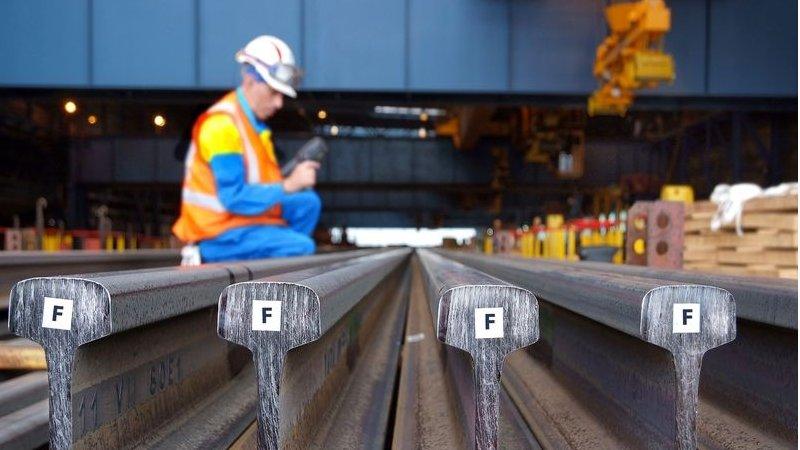
- Published18 January 2016
